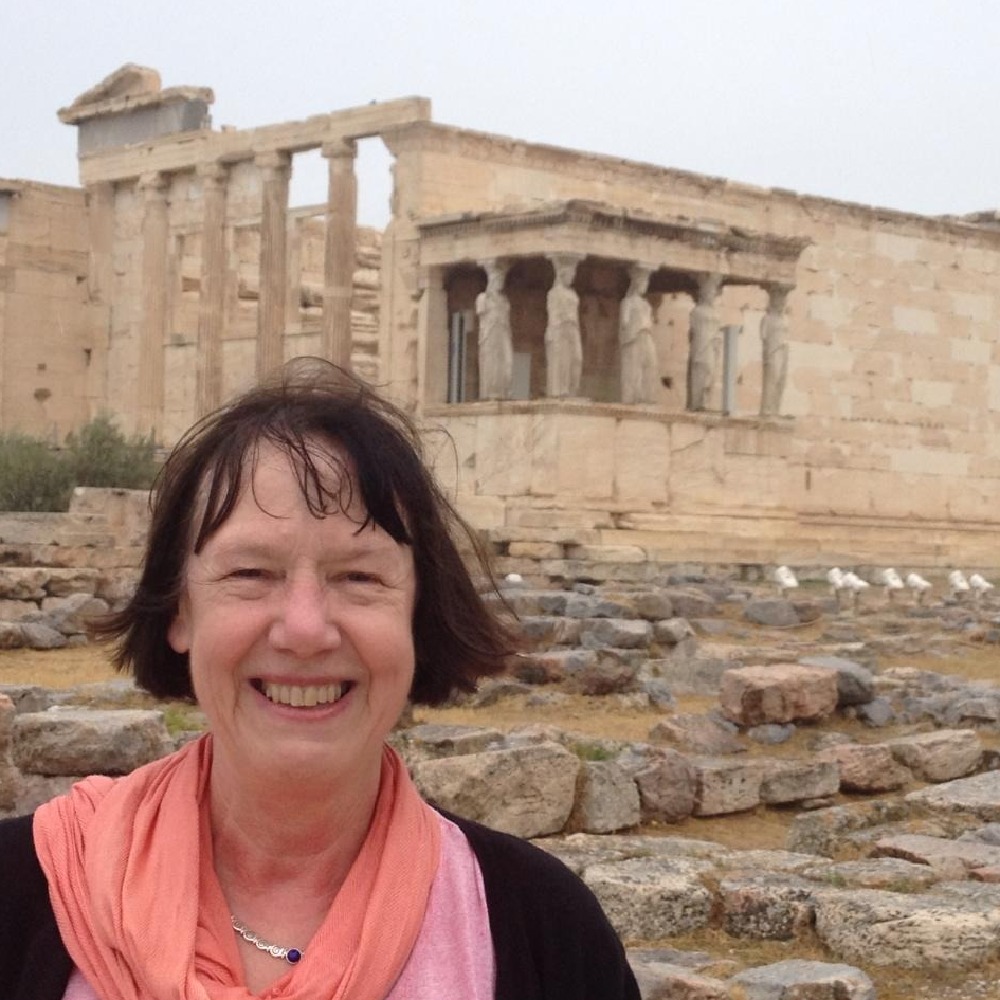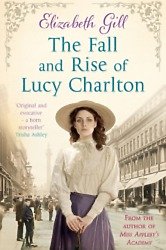
Elizabeth Gill

The Fall and Rise of Lucy Charlton took more work than any other book I have written, it’s 130,000 words long and I did rewrite after rewrite, trying to make sure that it was as good as it should be. It’s a story about a girl from Newcastle upon Tyne who is determined to take the law to the working classes. She is the second daughter. Her father had no son. Her tragedy is that when things go wrong her father believes the man her sister is marrying rather than his daughter and puts her out.
The main man in the story, Joe Hardy, is upper middle class and comes from London. He has just come back from the Great War and everything which makes his life precious is taken away from him. Lucy and Joe meet when Joe inherits an old river house from a mysterious woman and, having nothing left, comes to Durham. Lucy is working as a legal secretary for a solicitor and gives Joe the keys to his new house. Both main characters have huge problems. Lucy rescues Joe and that made me very happy. So often it’s the other way round.
Please tell us about the character of Lucy.
Lucy’s sister, Gemma is very beautiful and wants nothing more than to marry a decent man and have a family. Gemma is red haired, tiny and slim, Lucy is like a paler version of her sister, but tall and skinny and her hair is ginger and unmanageable. When they go to dances nobody asks Lucy to dance. She persuades her father to let her study law at Durham university, her ambition being to join him as a solicitor in Newcastle. What I love best about Lucy is how she tries to help poor people, such as the ones she meets when she goes to live with two old ladies in Rachel Lane, a street by the river which is practically falling down. It was a real street in Durham.
The book has been compared to Call the Midwife so how does that make you feel?
I’m very pleased that people think so. I admire the television series very much and when I read the books the photographs of the children in workhouses and poor areas made me want to cry and there these women are doing everything they can to help.
Call the Midwife is to do with families. I was one of four children, my husband was one of six, both with big extended families. So I learned a great deal about such things from being a small child, the intricacies, the fights, the tensions and the hierarchy. I was born in a tiny pit town where my father owned the local steelworks and I went to school in the village and saw children who had no shoes in the winter beyond plimsolls. Then I went to private school and finally to a very good boarding school. I also worked in journalism, ran a house journal, sold jewellery on markets and stacked shelves in supermarkets. Since then I’ve taught creative writing to adults, written articles and short stories and met many people. Having mixed in all parts of society I think I understand something of how it works.
Also Call the Midwife is essentially about women and how their role in society has altered and this is one of the main themes of my books. I am fascinated by the bigger picture of medicine, law and religion, things which touch all of us and many of these lagged behind for women. They still do and the anger it makes me feel helps me to write about it.
You live in Durham, so why was it important to you to write a book set there, what is the appeal of the area?
I’ve always lived in this area. I went to school in Durham City when I was ten and after living most of my life in the countryside around the city I finally bought a house here ten years ago and made new friendships and picked up old ones from my schooldays. I’ve been writing about the north east for thirty years. Writers who love the places they write about bring more feeling into their writing. They also call on accuracy of buildings, towns, accents, problems and the kinds of work which people have done there. When you start writing the first thing you are told is to write about what you know. That’s what I do.
Many of the streets in my novels are real. I mix it up. I remember one friend walking all over Durham to try to find a house called Swan Island, the name of the book I had just had published. It was the old name from one of the main parts of the city. I thought it was so beautiful that I wanted to use it. It’s nice to keep people thinking that the places you write about and the people in your books were actually there and sometimes I think they were.
How much has your background in journalism helped you to write your books?
I never wanted to be a journalist but I had to make a living and had no other way into writing. In journalism you learn to write concisely. If you don’t the sub editors cut it out. I learned a great deal about the law, I went to the courts to report on cases, I spent time with the police, learning what they do and also things like local government, people’s interests and how to write articles of general interest.
I learned not to express an opinion. After my time in journalism I went on to produce a house journal for a big company and here I learned about sub editing, lay out and headlines and how a page ought to look so that it gains the reader’s attention.
I didn’t enjoy being a journalist but it helped me to learn to write and I think it helped my confidence as a writer.
The experience itself of working in offices with other people was valuable. It taught me that I prefer to work alone! I learned to write on time, sometimes from a telephone box in a remote area at ten o’clock at night. Journalism is always today’s story. I prefer yesterday’s stories.
Please tell us about the research process into the 1920s to form the backdrop for the book.
I spend a lot of time thinking about when I want to set my books. Wars change so many things so that during or especially after a war is a fruitful place for a writer to start. The class system was never the same again as so many servants went to war or left the big houses to do things to help the war. Women’s place in society was changing. Women were going into male dominated occupations. Their struggle with this has always fascinated me. The middle classes began to rise. My comfy semi-detached house in town was built then and has lovely fireplaces in every room and stained glass in doors and windows.
I read endlessly, sometimes fiction but mostly biographies and history. There are a lot of books about women and their role in society in the twenties.
I bring half the library back home to my living room. I tell people what I am doing and listen to their memories or half memories and they give me books. I buy books too and because I have been writing historical fiction for the past thirty years I have accumulated a library of my own which reaches way back before 1800. I researched the big houses of upper class London for this book because part of it is set there. I try to be historically accurate whilst remembering that basically people don’t change. Also the dialogue has to be interesting and understood and that has changed and the attitudes which were appropriate then modern readers would not appreciate so many of the ideas are much more up to date than they would be, likewise speech patterns and dialect. I just try to make sure that none of it jars or sounds unreal.
Why did you want to focus on a time when society was dominated by males?
Because this was the time when women fought for and eventually achieved the vote and some of them became solicitors and doctors and tried to get into other professions. My books are about the struggle that women had and still have to a great extent to be allowed access to these professions and in a great many cases to have children. It’s a battle that has never been won, it continues today in many professions and in men and women competing for the various roles in marriage and other partnerships. Until the 1960s very few women went into law. As women came forward to compete men had find different roles for themselves and it’s a continuing problem, it changes all the time and is slightly different for everyone.
Also in this book I have written about a lesbian relationship, something which many people did not think happened at that time. The frustrations and loyalties between families and desires has always been a conflict which fascinated me.
What is next for you?
I am just finishing a book about an American doctor who divorces her husband and comes to work in a pit village up on the Durham fells. Prue Stanhope is large and clever and a good role model for us, I think, in a time where women are, for some reason, trying to take up less space, to be as thin and small as they can be. My heroine is out there with her expertise and her fine figure, trying to sort out the problems in an insular place, very like the nurses in Call the Midwife. There she is with her German Shepherd, Mabel on the passenger seat, and her rattling old car, driving around the fells of Durham.

